How IRGC contributes to regional security by destroying terror infrastructure
By Shabbir Rizvi
Late on Monday, Iran's Islamic Revolution Guards Corps (IRGC) launched a series of missile strikes in Iraq and Syria, hitting the targets with surgical precision. The next day, the IRGC struck more targets in the border region of Pakistan in a similarly calculated fashion.
While some political leaders and pundits may have made a show of condemning the strikes, the reality is that the IRGC has done West and South Asia a massive favor by destroying the terror infrastructure.
All targets struck were imminent threats that were breeding terroristic activity. The real crime would be to let them flourish, and then shrug one's shoulders once they had reached a point of creating mass chaos.
Of course, the obvious needs to be said: Iran has every right to defend itself from external threats. This is especially true after a series of terrorist attacks: one attack killed several IRGC personnel in December, another attack killed scores of innocent bystanders in Kerman, and another attack killed an IRGC officer assisting Syrian forces near Damascus.
All of these cowardly attacks happened within 30 days. And Iran has in unequivocal terms vowed to retaliate and teach the perpetrators a lesson.
The claim of “unprovoked aggression” ignores the reality, unless history began five minutes before each strike. Let us examine each strike in detail.
Syria
The IRGC strikes on Syria served a two-fold purpose. First and foremost, it was to punish the Takfiri Daesh terrorists responsible for the Kerman massacre just weeks before.
Leading up to the strikes, Iranian intelligence captured key perpetrators and networks behind the cowardly attack. This brought new intelligence that led to the discovery of Daesh networks through messaging apps such as Telegram, and shed light on their recruiting processes.
This investigation led to the targeting of a Daesh-affiliate stronghold in Idlib, which serves as a threatening front for the Syrian government while they also fend off Zionist aggression via Israeli bombing campaigns.
The IRGC’s strikes on this location paved the way for the Syrian government to retake its occupied land after nearly a decade of brutal war against Takfiri terror.
These strongholds are often hard to target or reach via ground forces. The IRGC was able to use its state-of-the-art weaponry to deliver a calculated blow and liquidate these terrorist strongholds, and eventually help bring Syria a step closer to full stability.
In the grand scheme of things, the continuation and preservation of this Takfiri group was only aiding and abetting the Israeli regime, as a significant Syrian force must be concentrated on these groups or else they will carry out more deadly massacres.
Quite remarkably, the Takfiri terrorist group targeted by the IRGC has never fired a single shot at Israel or any of its affiliates. On the contrary, they are insistent on fighting the only groups that stand against Israel: Iran, Syria, Lebanon, and Iraq.
It cannot be overstated that some of these Takfiri groups once apologized to Israel for targeting them. The sooner these Takfiri groups disappear, the faster the region can return to stability.
The second reason: by carrying out a strike of this range - about 1,230 kilometers - the IRGC is putting the Israeli occupation on notice that they are within striking distance.
As the anxious and unstable Tel Aviv regime moves to carry out cowardly assassinations in other countries, the IRGC has used the strike as a warning to Tel Aviv not to try anything they would regret.
Iraq
The IRGC also targeted a Mossad compound in Erbil, Iraqi Kurdistan. At first, critics condemned the move, citing the alleged death of only civilians.
But as the dust settled, the evidence became damning.
The targeted individual was Peshraw Majid Agha Dizayee, an Iraqi oil tycoon. Dizayee owned Empire World, a real estate company, as well as the Falcon Group, a military-mercenary firm - both had close ties with the Mossad spy agency.
Through these groups, Dizayee was transferring millions of dollars worth of Iraqi oil to the Israeli regime - under the nose of Iraqi officials and the Iraqi people.
It is important to keep in mind that normalization with the Zionist regime is a criminal act in Iraq and completely illegal. Dizayee was a traitor to his own country by aiding and abetting a genocidal regime, which has a history of aggression against the Iraqi people.
But accepting bloodstained dollars was not his only crime. Dizayee was hosting Mossad spies on the ground. He worked closely with Elan Nissim - a known Mossad recruiting agent in Iraqi Kurdistan - as well as members of the known terror group Kurdistan Freedom Party.
Dizayee was not just a threat to Iran by hosting Mossad cells so close to Iranian territory, he was also involved in selling natural resources of his country, and compromising the security of Iraq itself.
By inviting Mossad agents and beefing up terror groups, Dizayee through his vast wealth and resources was subverting national security.
Eliminating him sends a clear message that Mossad operations will not be tolerated and that Iran is prepared to act to ensure the safety of its neighbors from the Israeli regime.
Pakistan
Jaish al-Adl, which emerged out of another notorious terrorist outfit Jundullah, is a known terror group active since 2012 and operating within Pakistani territory and frequently sneaking into Iranian soil.
Even Pakistani officials have acknowledged and condemned their attacks against Iran, more recently in December last year when 11 Iranian policemen were martyred in the city of Rask in southeastern Sistan and Baluchestan province.
However, Pakistan, for one reason or another, has not taken firm action to stop this terror group from operating. Even Pakistan's former foreign secretary Shamshad Ahmad Khan, speaking on a local Pakistan TV station, acknowledged that Islamabad has failed to act against the anti-Iran and US-Israel-backed outfit.
Jaish Al-Adl not only targets police and military personnel in Iran but also targets civilians using Daesh-like methods like suicide bombings.
Shocking but not surprising, the terror group’s parent organization “Jundullah” was taking massive amounts of money from the United States. Using a proxy organization is the signature mark of the United States to cause chaos and destruction within the region.
Ultimately, these non-state actors, especially once revealed to be proxies for the US, cannot be allowed to exist. Viewing the Syrian model, these groups will attack anyone and everyone for the right sum - as they have no true allegiance and can be bought.
There would come a day when the United States mobilized the group to attack Pakistani cities such as Karachi, Lahore, Islamabad, or anywhere else.
If Pakistani officials cannot - or will not - see that these groups can be used against them as well, then that is an egregious error. They are extremely fortunate that Iran has years of experience battling American and Zionist proxies in Syria and Iraq, and on Tuesday took action to wipe out Jaish Al-Adl leadership using precise rockets and drones.
The road ahead
As a very tense week comes to a close, the region is safer than where it started.
Takfiri cells which pose a threat to not only soldiers but also women and children have now been eliminated. Mossad spies and their collaborators that subvert national interests have been destroyed. And US proxies that can be used against anyone at any time have been disabled.
Those who decry Iran’s actions crying “violation of sovereignty” should ask themselves if they were ever really worried about sovereignty in the first place if they allowed these malign actors to exist.
Each targeted group and individual worked with concrete evidence against the base nation’s interests.
The Islamic Republic of Iran knows through years of fighting off foreign plots, proxies, and sanctions what needs to be done in order to guarantee security.
Maybe some people may not see it that way right away, but years from now when CIA and Mossad documents become declassified, they can think back to the time when the proof was before their very eyes.
Shabbir Rizvi is a Chicago-based political analyst with a focus on US internal security and foreign policy.
(The views expressed in this article do not necessarily reflect those of Press TV)
VIDEO | Press TV's news headlines
VIDEO | Iran honors top Science Olympiad medalists
VIDEO | Austrians arrested at Gaza protest in Vienna
10 killed in bus crash in western Iran
VIDEO | One-man-band journalism with Civili
5 Israeli forces killed as Palestinian fighters face up to regime’s war machine
VIDEO | An insider's view of the country: Persian Tahini, Royan in Mazandaran
VIDEO | Israeli settler killed during strike against Tel Aviv; fresh aggression targets Yemen’s capital


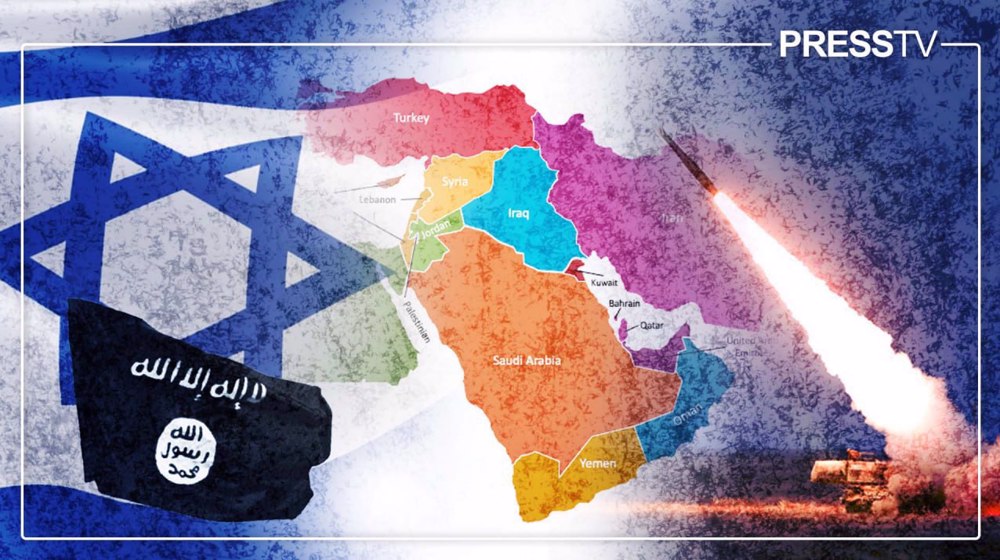
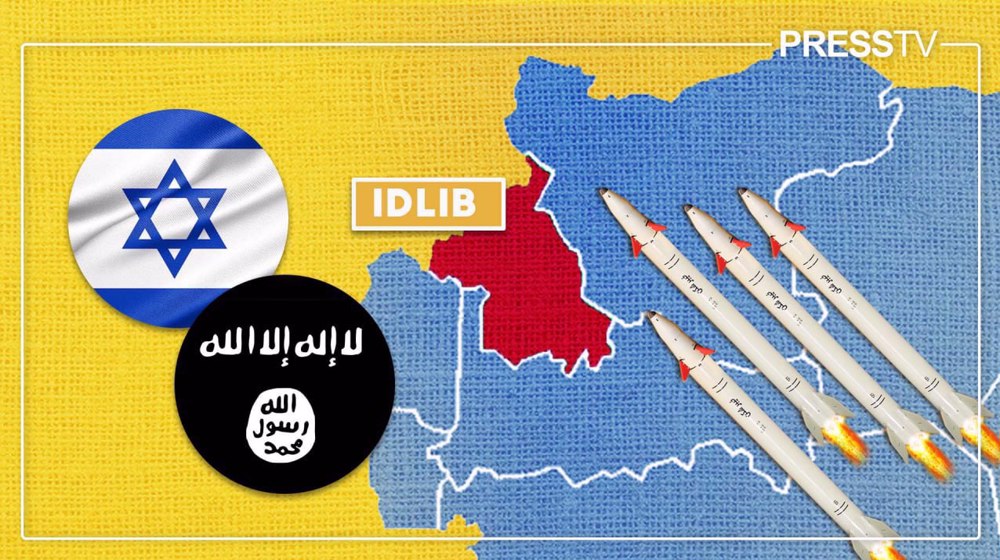
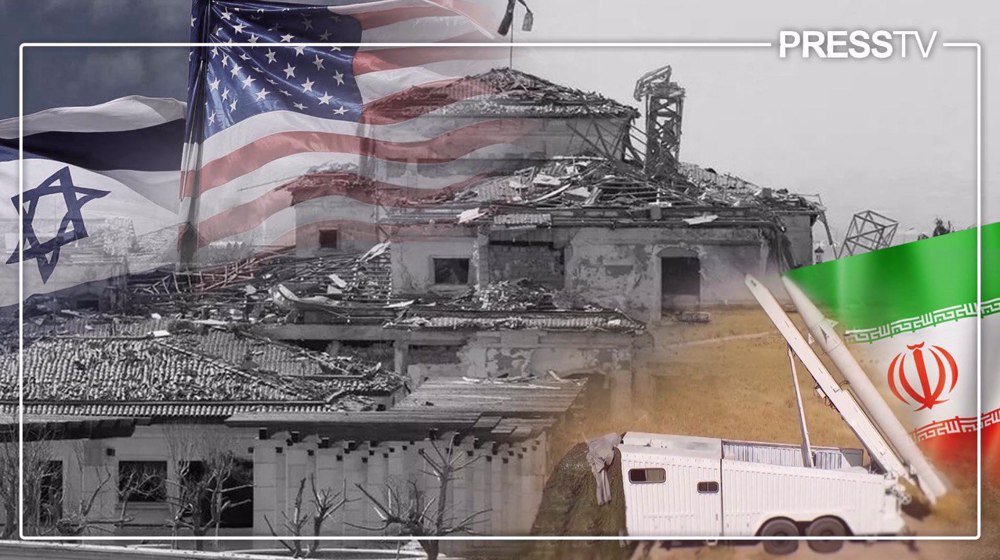
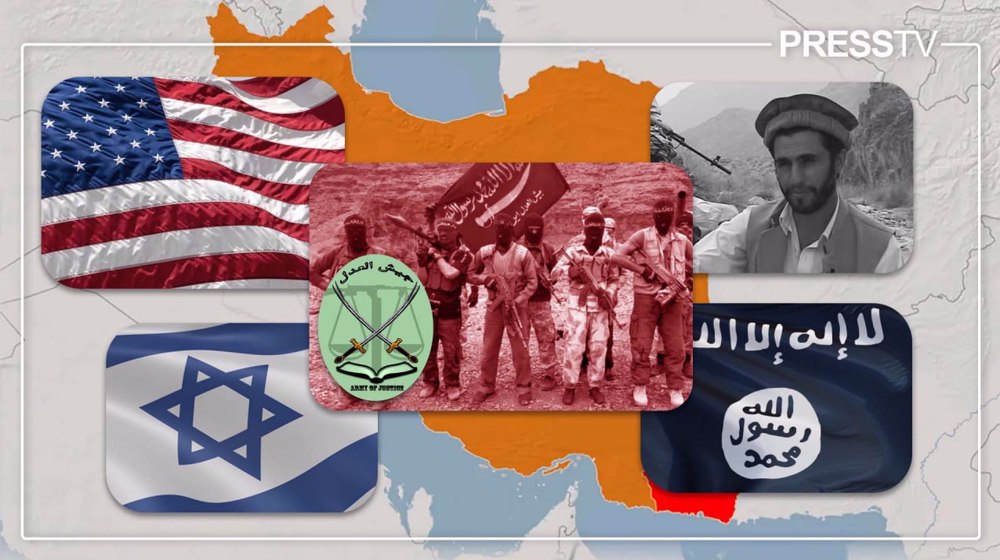

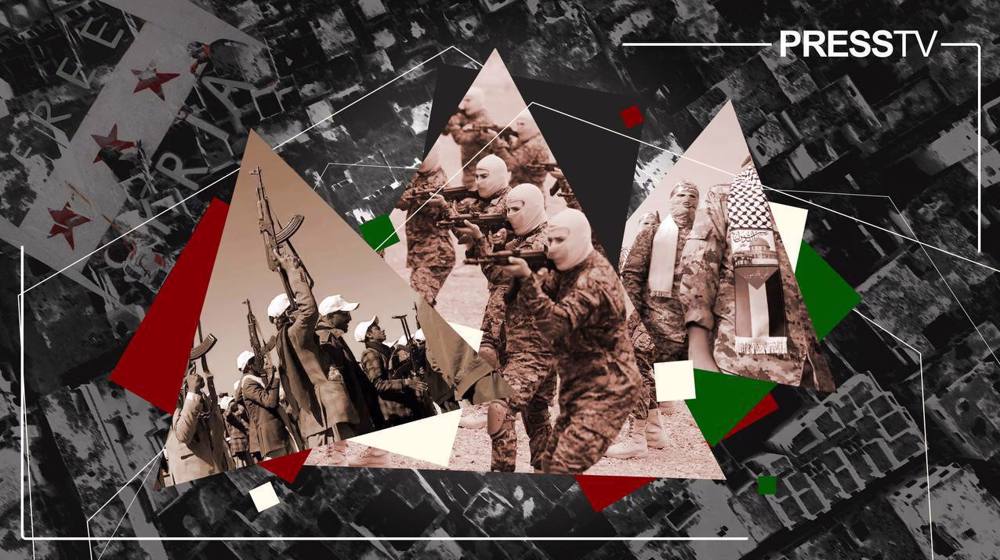
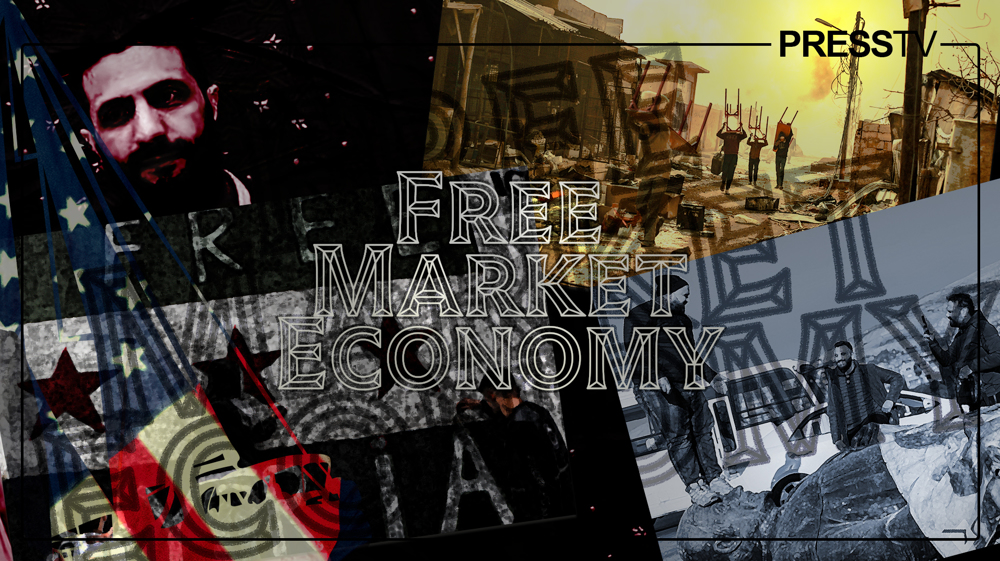



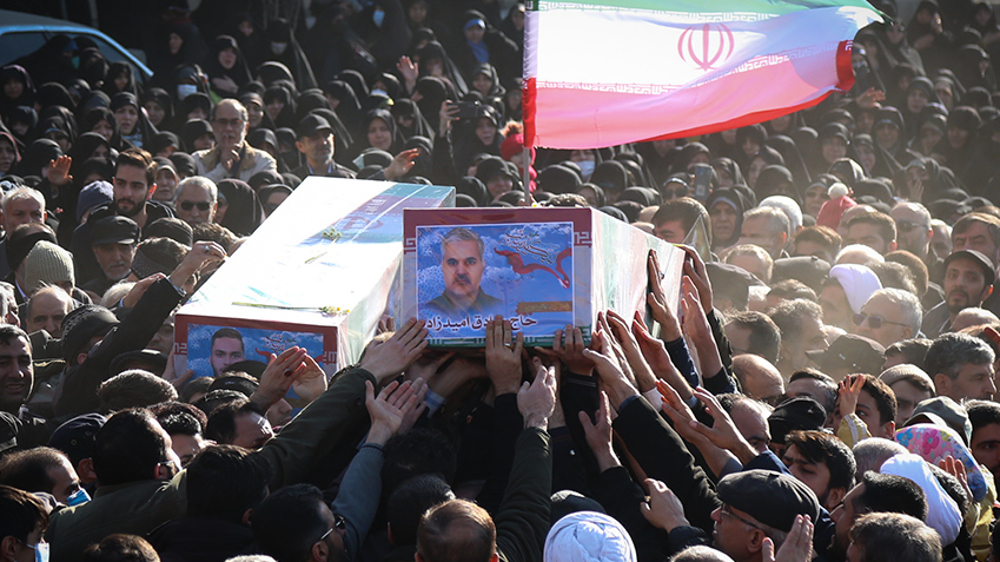
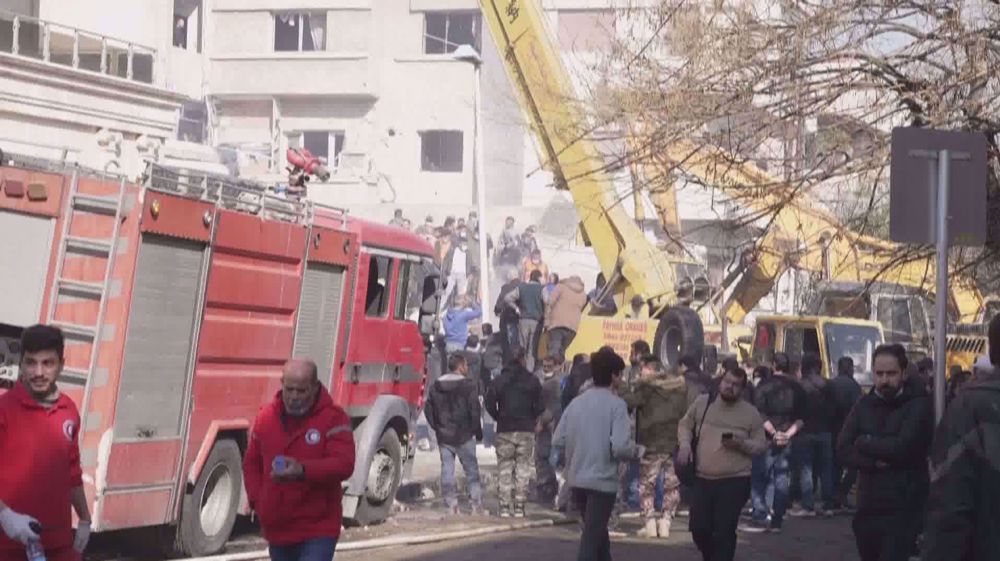
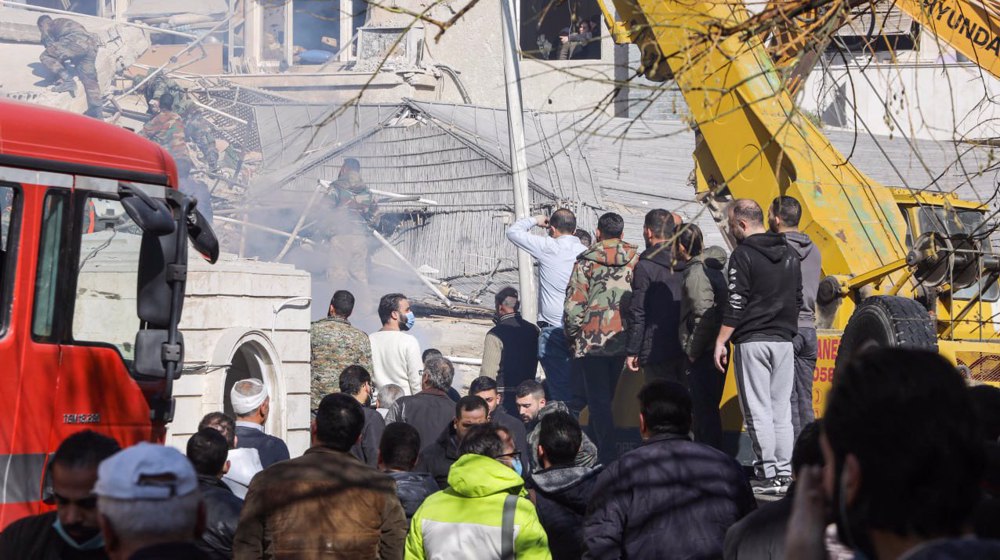
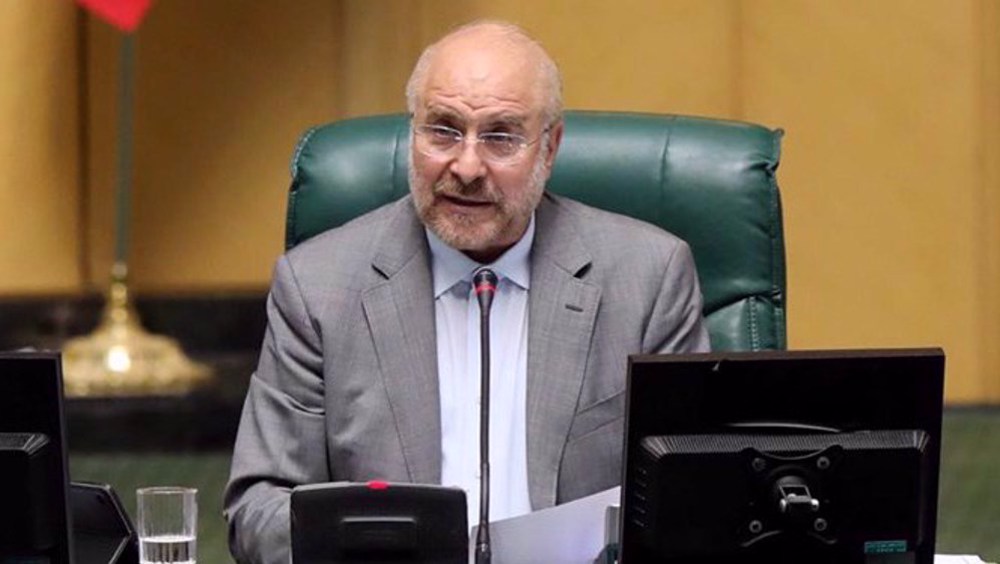
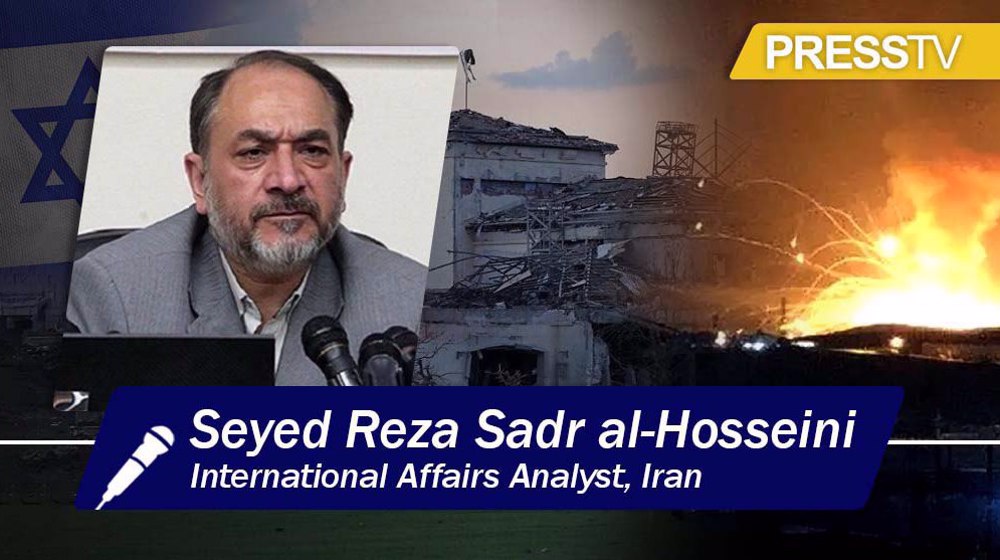

 This makes it easy to access the Press TV website
This makes it easy to access the Press TV website